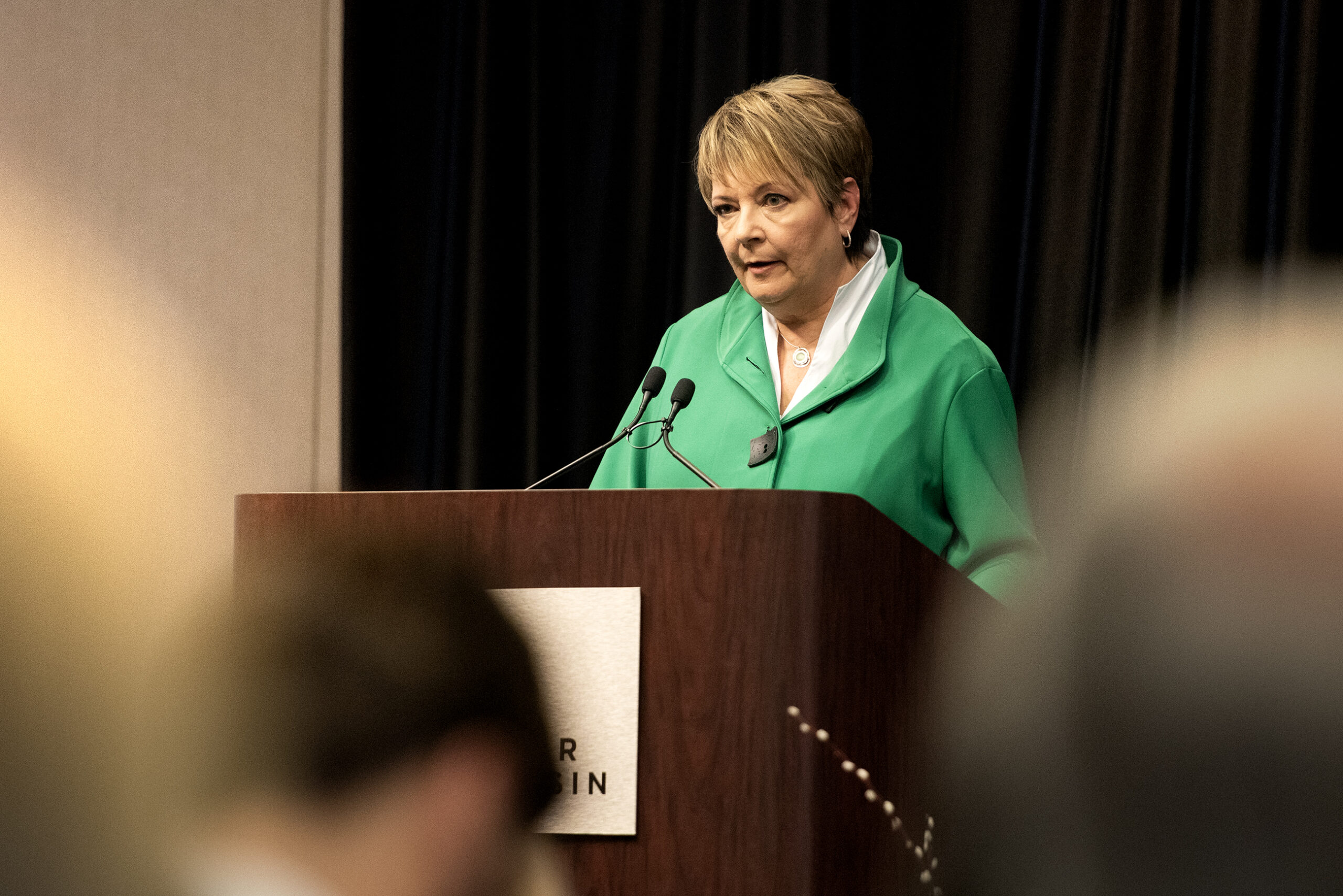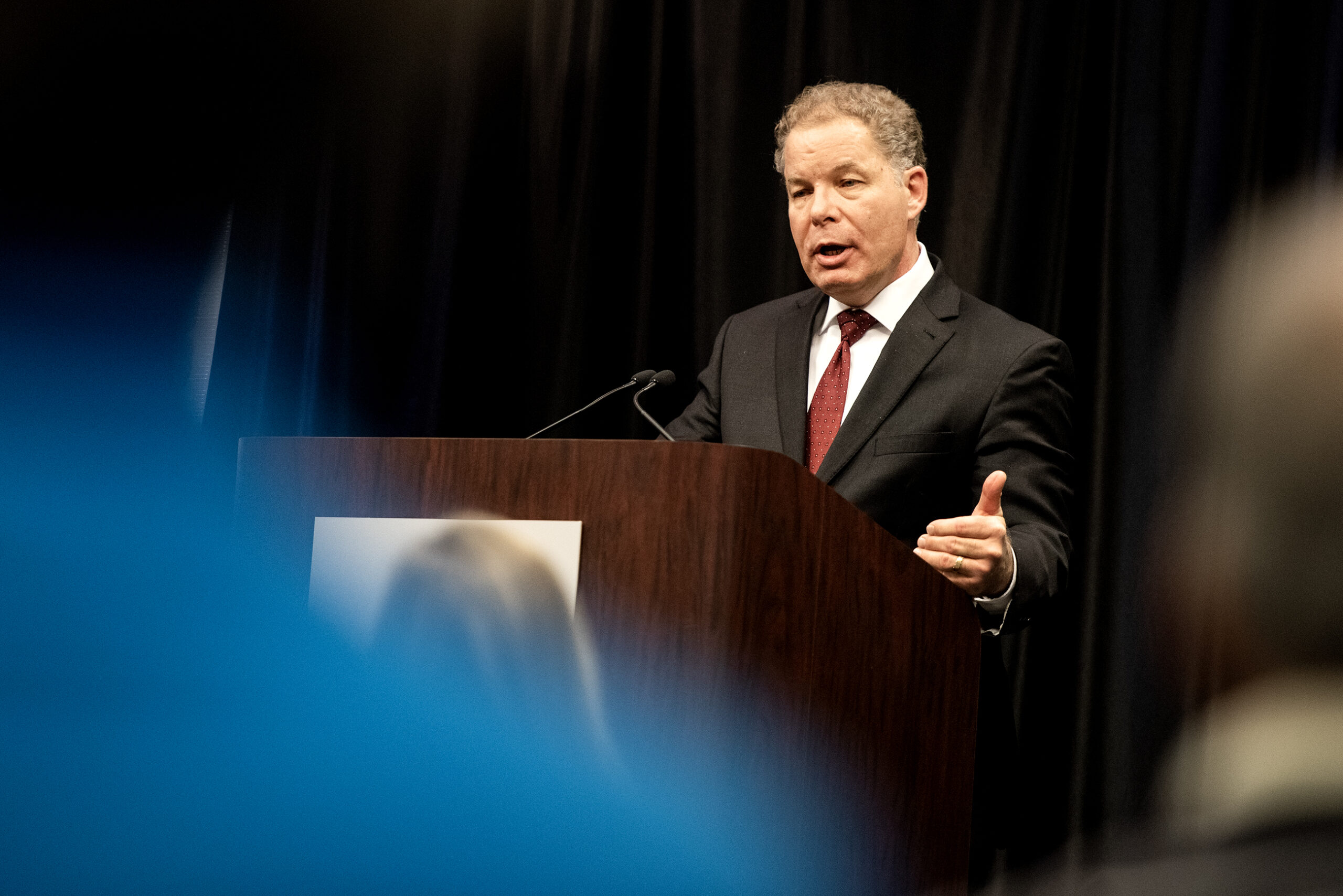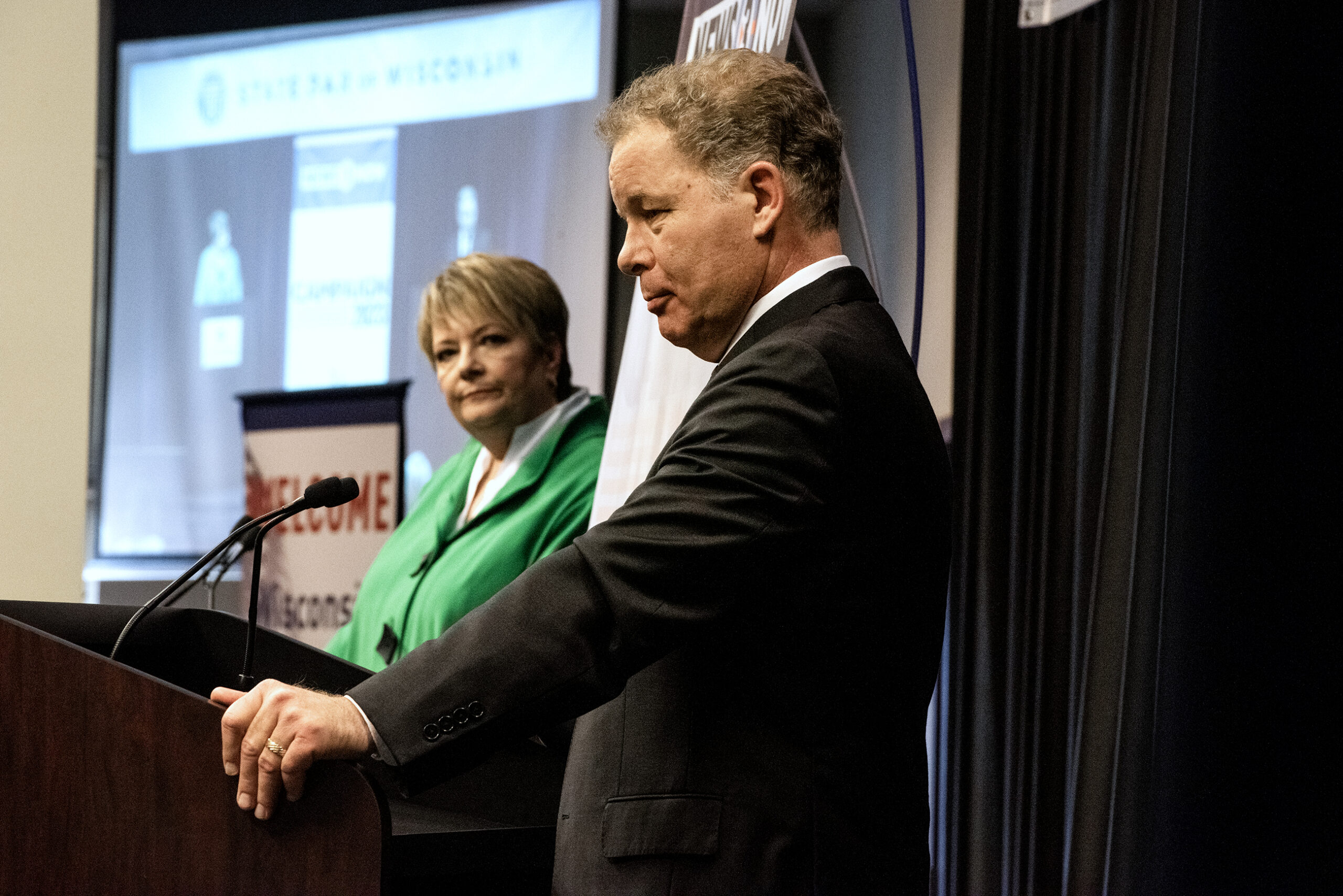The two candidates in Wisconsin’s contentious Supreme Court race each argued that their opponent was driven by partisan motives in back-to-back appearances on Wisconsin Public Radio Thursday.
Speaking on WPR’s “The Morning Show,” Judge Janet Protasiewicz called former Justice Dan Kelly a “partisan extremist,” while Kelly argued “there’s enough room on the Supreme Court for the Constitution or for my opponent, but not both.”
The two are running in a technically nonpartisan race that has become bitterly politicized — and massively expensive — as national groups from both ends of the political spectrum have offered endorsements and an influx of cash.
News with a little more humanity
WPR’s “Wisconsin Today” newsletter keeps you connected to the state you love without feeling overwhelmed. No paywall. No agenda. No corporate filter.
The candidates met for only one debate in the general election, hosted Tuesday by the Wisconsin State Bar Association. Thursday’s radio appearance offered them a chance to respond to questions about their records and judicial philosophies, as well as to accusations lobbed by the other.
Central to many questions was a difference in how to be an impartial jurist in a state that elects its high court judges. Kelly is favored by conservatives, and has worked for the Republican Party since leaving the Supreme Court in 2020. Protasiewicz is favored by liberals and is receiving substantial organizing support and campaign funds from the state Democratic Party.
Whoever wins the race is expected to take up high-profile court cases regarding the legality of Wisconsin’s pre-Civil War abortion ban and the administration of statewide elections, and could also reexamine Wisconsin’s legislative maps.

Protasiewicz has been outspoken about her personal beliefs on these issues — she’s stated her support for abortion access and called the state maps “rigged.” She reiterated those ideas on Thursday as statements of her values, but insisted that those views would not determine how she would rule from the bench.
“All of my decisions are rooted in the law,” she said. “They’re based on the Constitution. They’re based on the statutes that we have. They’re not based on predetermined outcomes.”
Kelly also conceded that he holds personal political beliefs — and said any jurist does — but that he uses a methodology that allows him to put those politics aside and rule fairly.
“When you’re done (assessing a case), you should be able to look back and see an unbroken chain of logic between the conclusion and the premises,” he said. “And if you can, that’s your guarantee that the conclusion is commanded by law, and is not influenced by politics, because logic doesn’t care about your politics.”

One question that might go before the Supreme Court involves the legality of the state’s legislative maps, which were drawn by Republican lawmakers and upheld last year by the state Supreme Court’s conservative majority. Critics of the maps have called them among the most gerrymandered in the nation, giving Republicans a numeric advantage in both the state Legislature and the U.S. Congress in a state where voters are fairly evenly split between the two parties.
Protasiewicz said she hoped the maps would get a “fresh look” from the court, framing them as an example of how she could apply a legal framework to a question of significant political import.
She also argued Kelly was politically aligned with the authors of those maps.
“When those first gerrymandered maps were being drawn, who was advising the Republican Party about drawing those Republican maps? None other than my opponent,” she said.
When Republicans first redrew Wisconsin’s legislative maps more than a decade ago, Kelly, who was then a private attorney, defended the GOP redistricting plan in federal court.
Kelly said the maps could be contested on established legal grounds — such as to determine whether they violate voters’ rights, or are not shaped according to Constitutional requirements — and argued it was Protasiewicz, not him, who would bring politics into that process.
“I understand that there’s a fair amount of dispute about whether the maps are quote-unquote ‘fair,’” he said. “I think that’s a political judgment.”
“What courts will never do — or at least should never do — is steal the Legislature’s power to answer the political questions,” he added.
Early voting has already started for the Supreme Court election. Election day is April 4.
Wisconsin Public Radio, © Copyright 2026, Board of Regents of the University of Wisconsin System and Wisconsin Educational Communications Board.





